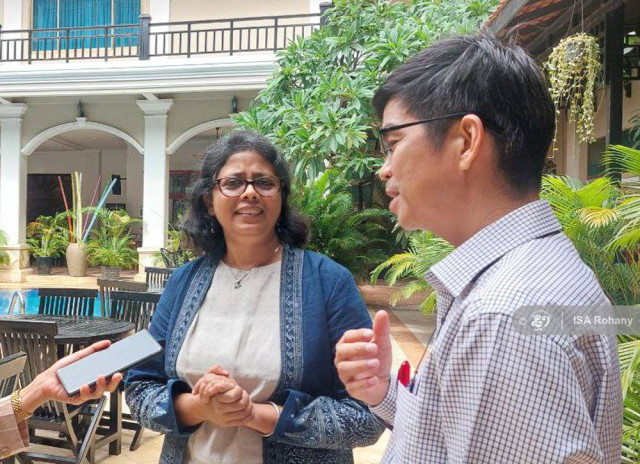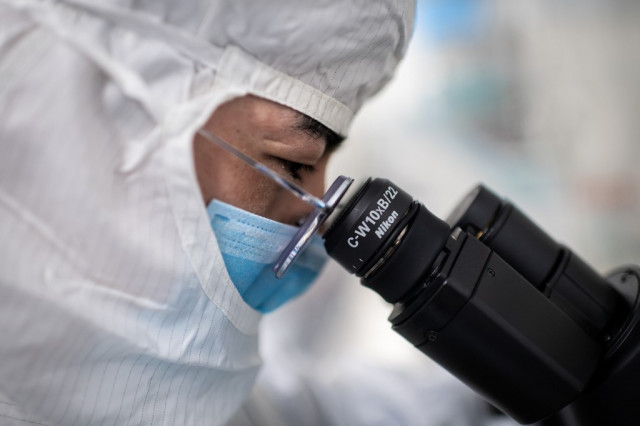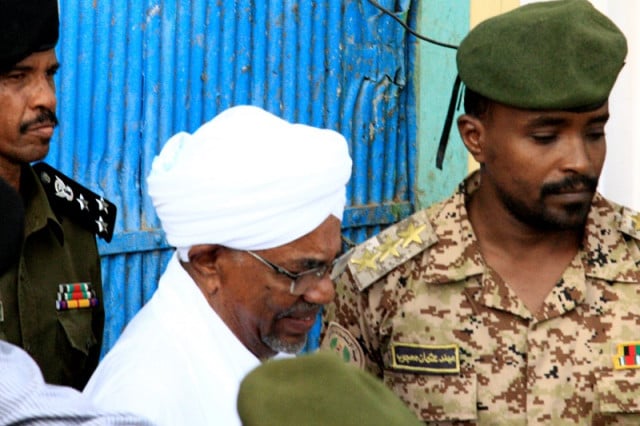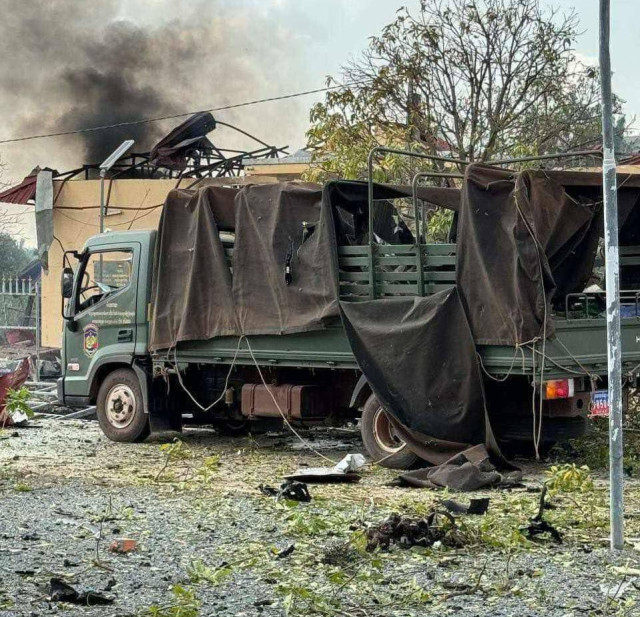Researchers Advocate for Better Groundwater Use in Siem Reap

- By Isa Rohany
- June 19, 2023 11:02 AM
PHNOM PENH – The Sustainable Mekong Research Network (SUMERNET) believes that improving the way groundwater is used in Siem Reap province can be beneficial to both the Angkor temples and the people.
Sushmita Mandal, a senior researcher at SUMERNET, said the government had recognized the impacts of overusing underground water in the city of Siem Reap, whose hospitality sector needs a constant supply of water.
While water is essential for the tourism industry, it also plays a crucial role in the Angkor archeological park. The underground water is what maintains the stability of the sandy soil in which the temples’ foundations are built. If such invisible water were to become scarce because of being overused for human consumption, it could cause irremediable damage to the temples.
SUMERNET is a regional network for research and policy engagement in the Mekong region, bringing together research partners working on sustainable development in the Mekong countries: China, Laos, Myanmar, Thailand, Cambodia and Vietnam.
On June 12, the network conducted a workshop in Siem Reap with water specialists from various backgrounds – the Water Supply Authority, the Apsara National Authority, and NGOs – to help preserve the Angkor world heritage in accordance with preserving water consumption in the nearby city of Siem Reap.
Cheav Bunthang, a technical officer of APSARA National Authority’s Water Resources Management, Forest Management, and Infrastructure Unit, said that the workshop has shown the issue of overusing groundwater in Siem Reap province, whose consequences on the temples’ stability can be worsened in the future if rainfalls were to decrease.
Bunthang said that to solve those issues, the APSARA National Authority has tried to fill the ancient reservoirs, such as the Barays, moats, and canals, that can supply groundwater. In addition, the authorities are trying to preserve existing forests and plant more trees in the Angkor Archaeological Park to preserve the soil’s moisture in the area.
Sushmita Mandal believes that in order to manage and address groundwater overuse issues, it is necessary to disseminate information so that the community has a better understanding of the issue and knows how to adapt.
“For sustainable development, as we have limited water resources, we should tell the people to save water and recycle it; there is no unlimited water, and we can’t stop people from using the water. But we can tell them to use it in the right amount and the right way,” Sushmita said.
Originally written in Khmer for ThmeyThmey, this story was translated by Te Chhaysinh for Cambodianess.















